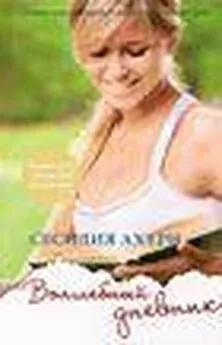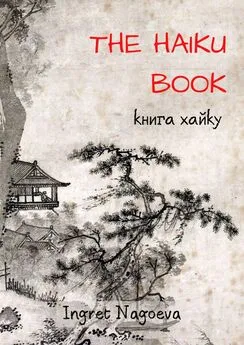Daniel Ingram - Mastering the Core Teachings of Buddha - An Unusually Hardcore Dharma Book
- Название:Mastering the Core Teachings of Buddha - An Unusually Hardcore Dharma Book
- Автор:
- Жанр:
- Издательство:Aeon Books
- Год:2009
- ISBN:9781904658405
- Рейтинг:
- Избранное:Добавить в избранное
-
Отзывы:
-
Ваша оценка:
Daniel Ingram - Mastering the Core Teachings of Buddha - An Unusually Hardcore Dharma Book краткое содержание
Mastering the Core Teachings of Buddha - An Unusually Hardcore Dharma Book - читать онлайн бесплатно полную версию (весь текст целиком)
Интервал:
Закладка:
This turns out to be a very small group most of the time. You could also say that you can only teach those who didn’t really need you to teach them in the first place, as they were going to do it anyway.
It is possible, though not necessarily advisable, to drop all kinds of really glaring and even tacky hints that one has attained to mastery of some aspect of the amazing states and stages of the spiritual path and yet have no one show even the slightest sign that they have picked up on them. Even more bizarre is how few people, having been directly and unambiguously told that they are around someone who has attained to some deep level of mastery of this stuff by standard methods, will actually ask reasonable questions about how they could do the same.
Even more surprising is how few of those who do ask good questions will then use this practical information wisely. As Bill Hamilton put it, “I have a treasure of infinite value that nobody wants.” He was only barely exaggerating, even as regards many of those who consider themselves
“meditators” and “Buddhists.”
Thus, out of practical self-preservation and a reluctant respect for the fact that most people seem not to want to hear about actual mastery of this stuff, the majority of those who do master concentration and/or insight practices tend to not talk about it, or only to a very few (see Saints and Psychopaths, by Bill Hamilton, for an interesting discussion of some of these issues, particularly the etiquette of enlightenment). All this contributes to the “Mushroom Factor.”
Lastly, there seems to be a somewhat odd lack of support for up-and-coming potential teachers. One of my friends has commented that it can be much easier to get enlightened than to get “lineaged,” i.e.
officially acknowledged that you are a qualified teacher and a reasonable enough person to be allowed to teach, have students referred to you, be a part of the monitoring process that keeps teachers on the up and up, 343
More on the “Mushroom Factor”
and that sort of thing. Two of my very best, most dedicated and accessible teachers were not officially sanctioned, despite their high attainments, great teaching ability and extensive knowledge of spiritual practice. Also, there often seems to be little clear articulation of roles that occupy the middle ground, little well developed sense of apprenticeship, little sense of intermediate territory between fully lineaged teacher and student. The degree of these issues varies by tradition.
It is true that there are some good reasons why the senior teaching establishments are slow or reluctant to allow new teachers into the carefully guarded inner circles. There are certain individuals who possess the mastery needed to be a teacher but are not good choices for other reasons, with mental pathology and odd personality traits being chief among them. There are those whose political skills have been such that they have managed to get sanctioned despite the fact that they were not qualified to teach at the level they claimed they could, with predictable associated problems following suit.
However, current senior teachers, many of which are the first generation of Westerners to be so, do not yet seem to be quite as comfortable giving sanction to new teachers as their Asian teachers tended to be giving sanction to them. Perhaps this will correct itself given time, as there is a lot of unused talent out there and a lot of unmet demand for authentic teachers. On the other hand, making a living as a teacher can be hard, and who needs more competition for scarce donations or seats on the front platform at overbooked meditation centers?
It is also true that numerous meditation traditions that have come to the West have many people teaching in them without the foggiest idea that they are not at all qualified to do so. The old texts state that one should have at least crossed the A&P Event to teach, though in the tradition I come from they consider second path as the standard minimum requirement for any sort of teaching. Basically, chancing into a path is impressive, but being able to tag another one demonstrates reproducible competence. I again blame the Mushroom Factor for this, as I suspect that if people knew what reasonable standards are for teachers and that there are actually those who meet these, many would 344
More on the “Mushroom Factor”
then realize that they simply shouldn’t be teaching and bow out gracefully.
Beyond this, there are also good reasons to question the very concepts of “teacher” and “student” and the disturbing and often unquestioned rigidity with which they are sometimes applied. One person may have an understanding that they share with someone else and then turn around and ask them a question about something that the person who was a “student” just moments before is skilled in. I have come to the conclusion that some of the best teaching happens in conversations between friends and not in the context of very short, formal interviews with lineaged teachers who have just flown in for the week.
The climate of secrecy surrounding conversations about mastery of these things, restrictive lineage issues and the rarity of engaging in long, deep conversations with harried and over committed Jet Set Dharma Teachers combine to create what I term the “Dharma Underground.”
This refers to loose associations of those who are “in the know” but not officially sanctioned who cautiously seek one another out, support one another, and exchange ideas about how to go deeper in ways that have everything to do with friendship and empowerment and little to do with formal lineages or rigid concepts of “teacher” and “student.”
Often such conversations occur in “silent” retreat centers or in other ways that involve breaking some of the rules that may be helpful from one perspective but also defend the semi-arbitrary privileges of the lineaged elite while disempowering and marginalizing others with valuable and accurate knowledge and experience to share. Interestingly, when reading the old texts I often get the feeling that a significantly more egalitarian, balanced, and friendly style was much more the model that occurred in the early Buddhist community, and I often long for its return.
It is interesting that, unlike Tantric traditions and many others, the Theravada does not have any formal vows of secrecy regarding the details of mastery of its practices. Perhaps they would just be needless overkill.
345
Mastering the Core Teachings of the Buddha
35.SO WHO THE HECK IS DANIEL M. INGRAM?
I suppose that if I am going to rant about how most dharma teachers do not do a good job of clearly stating what they know, what they teach, etc. then I should try to avoid being a complete hypocrite and thus answer some of those questions here.
Here’s my Western Teacher Bio the way I would have it on a
retreat center brochure: “Daniel is a Double Aquarian from North Carolina who prefers to be called ‘Dharma Dan,’ ‘dude’ or simply
‘Honored Archmystic, Sir.’ His favorite movie is ‘Raising Arizona.’” Just kidding!
Let’s try that again: “Daniel is an extroverted Gen X intellectual. He is known for his pronounced enthusiasm, lip-flapping, grandiosity, eccentricity, and calling people on their stuff and shadow sides regardless of whether or not this is helpful or even accurate. He is an arahat and has a solid mastery of the basic concentration states from the first jhana to Nirodha Samapatti, including the Pure Land Jhanas. He also has a solid knowledge of Buddhist theory and the texts, and because of these three areas of expertise considers himself a qualified teacher. He was also authorized and encouraged to teach by a lineaged abbot of the Mahasi Sayadaw tradition. When it comes to insight practices, he has standards so high, exacting, and uncompromising that only those who are dedicated practitioners are likely to find them helpful. On the other hand, he is a firm believer that if people simply practice the basic techniques recommended by the Buddha they can be very successful and awakened meditators. He is one of the rare teachers who will talk about insight directly and answer nearly any question about dharma practice without using code, covering things up or watering things down. Daniel is a diehard Mahasi Sayadaw fan, though he is very happy whenever he sees people trying to master any of the world’s great mystical traditions and thus considers himself a pan-mystical evangelist.
He is also a chronic map-monger and technique freak because he has had them work very well for him. He does not claim to have any special knowledge of how to live skillfully in the conventional world, but has found that a positive attitude, non-pretentious kindness, and a sense of humor will take you a long way. If you imagine that you want to bust out
So Who The Heck Is Daniel M. Ingram?
some hardcore practice but are in fact just looking for a daddy, shrink, social worker, or someone to help you prop up your self-esteem, Daniel is unlikely at this stage in his development to be the best person to help you meet your needs. He considers himself to be one badass Dharma Cowboy and prefers similar company or at least those who aspire to be so.”
I dare, no, I double dare any other teacher to be that honest when writing their next bio, not that they are likely to be given enough space to disclose anything resembling this much honest and practical information. A few more things: I crossed the Arising and Passing Away when I was about 15 and did it again about 4 more times by my recollection over the next 10 years without formal practice, technique or guidance. I attained to stream entry at the end of the first week of my fourth retreat on January 13th, 1996 in Bodh Gaya, India, in the Thai Monastery. I also crossed the Arising and Passing Away of second path on that retreat. I attained second path in daily life while working at the National AIDS Hotline with the CDC in July, 1996. I was in the break room just hanging out. I attained to Third Path towards the end of 1996, also in daily life, after a retreat a few weeks before where I crossed the Arising and Passing Away of that cycle. I attained to Nirodha Samapatti (see the appendix) one month later, but it would take me a more few years to really nail down hard samatha jhanas and the formless realms so that I could access them off retreat.
I was an anagami for almost 7 years, going through cycle after cycle of progressive appreciation of the emptiness of ordinary phenomena, with my total count of what felt like full new paths being about 27. I wrote most of this book during that time. I also earned a two-year Masters of Science in Public Health in Infectious Disease Epidemiology at UNC Chapel Hill and then went on to complete medical school there.
Then, on April 17th, 2003, on a 21-day retreat at the Malaysian Buddhist Meditation Center between medical school and my residency, I attained to arahatship. It happened while I was doing walking meditation on that glorious Spring morning. I was sick of the cycles of insight and profoundly inspired by the steady and gentle invitation of the teacher, Sayadaw U Pandita, Junior, to simply see through the whole 347
So Who The Heck Is Daniel M. Ingram?
thing as he had done. His calm smile seemed say, “You can do it. Come on! Any day now.” Always sit with arahats if you possibly can. That’s my advice, anyway.
I decided that I would allow no sensation anywhere in the entire wide sense field to go by without it being clearly known as it was during every single second of the day. It was a high standard, but strangely enough can actually be very closely approximated. It was sufficient to do the trick after about a week of doing that some 20+ hours per day. I remember attaining to a Fruition, and a few seconds later I noticed something about the entrance to it and the re-forming of the sense of a perceiver on the back side of it, and then suddenly the knot of perception flipped open, everything was the same and yet the perspective on it was completely different, and my vipassana problem, once I had stabilized in that understanding, was solved.
Читать дальшеИнтервал:
Закладка:
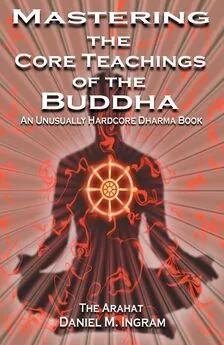
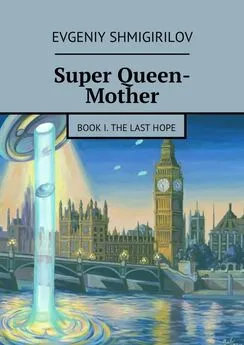

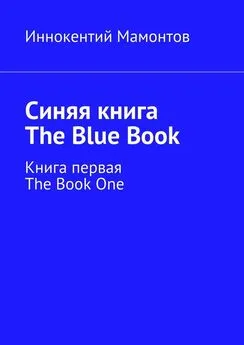

![Дженнифер Гюнтер - The vagina book. Главная книга для тех, у кого есть этот орган [litres]](/books/1061538/dzhennifer-gyunter-the-vagina-book-glavnaya-kniga-dl.webp)


